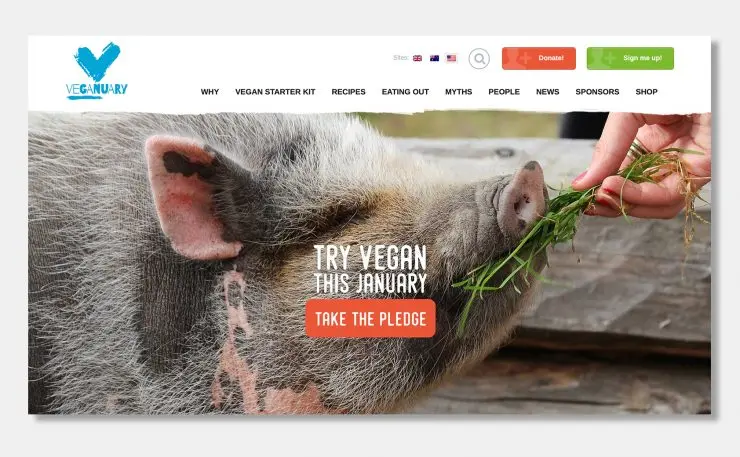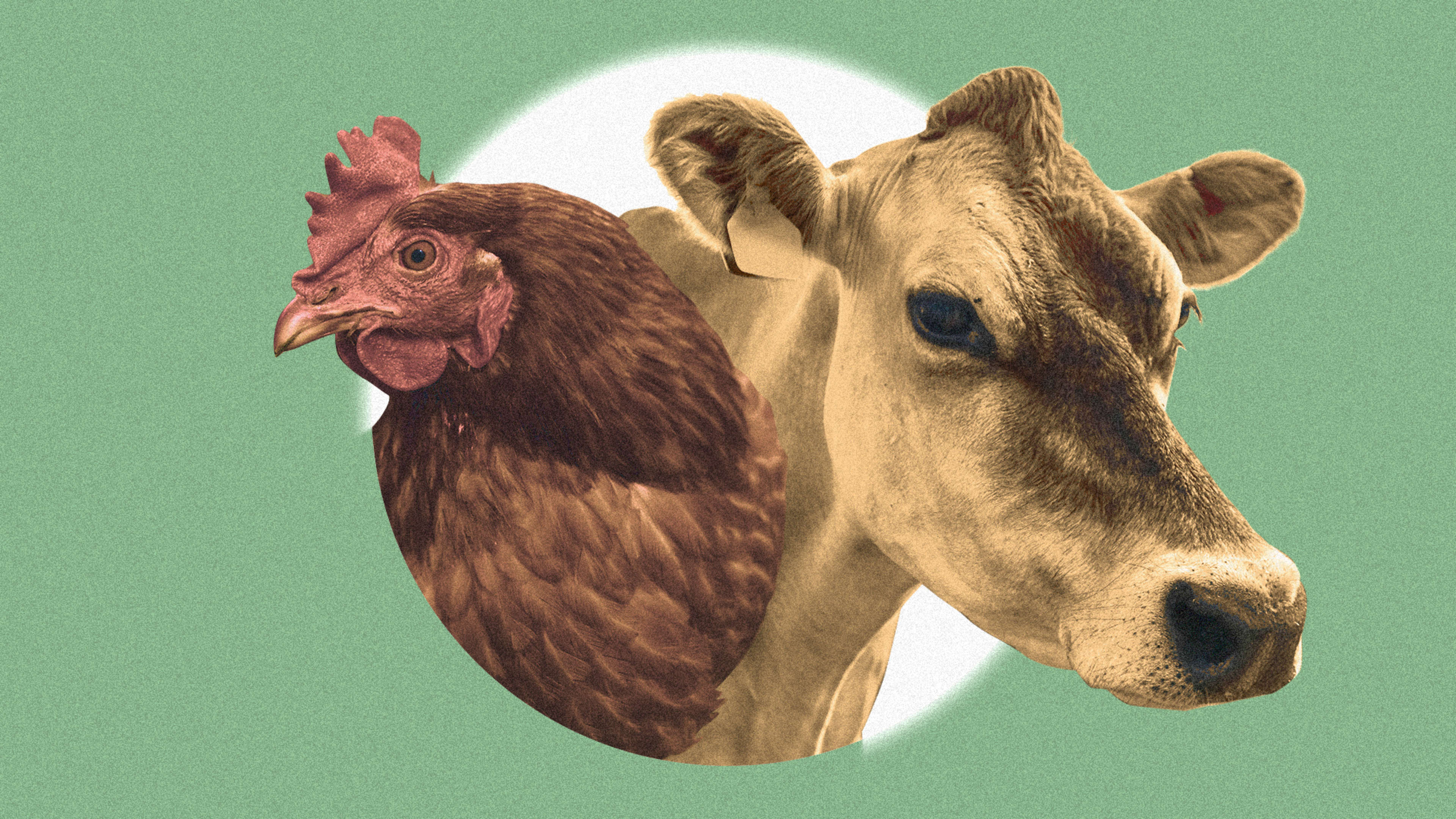Last year, nearly 170,000 people signed an online pledge with Veganuary to avoid animal products including meat, milk, eggs, and butter for the month on January. Going vegan for the entire month might sound difficult, but results prove otherwise. In 2018, the majority of folks who signed up for the challenge not only completed it but continued on, adopting veganism as a lifestyle change.
More than 80% of participants later reported that they’d eaten animal-free the entire month. And more than 60% of participants continue to maintain that diet shift.
Part of their success stems from Veganuary’s support network. Veganuary participants receive regular emails to stay motivated. There’s also a home page full of recipes, shopping guides, and other helpful resources. Since starting in 2014, the U.K.-based nonprofit has seen participation roughly double year-over-year. About 35% of those participants come from the Unites States, half are from the U.K., and the rest are scattered among more than 190 participating countries.

The other factor bolstering their success is that going vegan today may just be tastier and more convenient than it was a few years ago. Retail sales for a new wave of plant-based products jumped 20% in the U.S. last year, totaling $3.3 billion in annual sales, according to Nielsen research. A majority of Americans are also reportedly cutting back on meat consumption because of health and cost concerns. Toss in the fact that livestock accounts for a massive share of the world’s greenhouse gas emissions, and you’ve got three pretty compelling selling points.
“Vegan trends are really hitting the mainstream now, and people are actively choosing these products because they think that they’re better for their health, they’re cognizant of the environmental benefits, or they want to help alleviate animal suffering,” says Veganuary’s CEO Simon Winch.
In addition to offering the animal-free pledge, the campaign also accepts donations, which it spends on more awareness efforts. Some of those come from different faux-meat companies; more than a dozen support the charity in different ways, including helping to raise awareness, with an obvious interest in seeing the trend take off.
Last year, Veganuary operated on a budget of about $750,000. Using some back-of-the-envelope math, Winch calculates (based on traditional eating habits) how much meat isn’t being consumed per convert. He estimates that the 2018 pledge takers alone saved about 2.1 million animals from slaughter. For Veganuary, that works out to spending about 35¢ per life saved, although it may be even cheaper: The group estimates that about 10 times more people participate in Veganuary informally than formally each year. “In terms of effective advocacy and really helping to make this planet a more compassionate place, we’re doing something quite incredible on a shoestring,” he adds.
Seth Tibbott, the founder and chairman of Tofurky, the tofu-based faux turkey brand, says his company made an undisclosed donation to the charity, which he recently joined as a trustee. Tofurky promotes Veganuary through complementary campaigns in the U.K., and that pays off. Last January, the brand’s sales to retailers and food service companies “just about doubled” there, he says.
Tibbott hopes to see the same bounce in the United States as Veganuary’s efforts expand. “We see nonprofits like Veganuary as sort of the unpaid marketing arms of Tofurky and the whole plant-based movement,” he says. “So we’re trying to encourage all companies to rally around Veganuary and other nonprofits like this to help create a vegan world and more vegan products in the market.”
Informal participation aside, at least 250,000 people have taken Veganuary’s pledge in recent years. As Winch puts it, “We want them to go vegan and have an amazing experience, and then stay vegan at the end of it.”
Recognize your brand’s excellence by applying to this year’s Brands That Matter Awards before the early-rate deadline, May 3.
